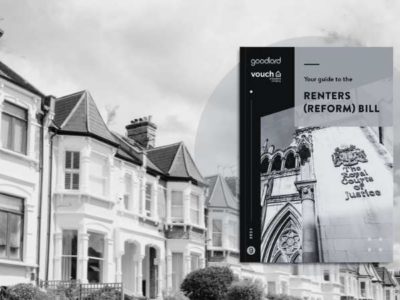A promise to sell homes for £1 by Scottish Labour is just the latest in a long line of politically led housing gimmicks according to a leading property firm.
DJ Alexander Ltd, which is the largest lettings and estate agency in Scotland and is part of the Lomond Group, said that the announcement by Scottish Labour leader Anas Sarwar at the party’s conference last weekend was just another headline grabbing statement aimed at gaining short term publicity without addressing the real underlying issues in the housing sector.
Mr Sarwar stated that:
“There is no single solution to the housing crisis.
It means building more houses, with the right infrastructure in place – being innovative and ambitious in our plans.”
However, he then stated that his party would offer to sell an estimated 27,000 long-term empty homes in Scotland for £1 each and provide Government-backed loans to renovate these properties.
Under this plan, councils would identify and compulsorily purchase properties designated as long-term vacant, currently defined as being empty for 18 months, with the average property costing £12,500.
Mr Sarwar stated:
“We believe these (properties) need to be put back into use to create new homes and revitalise and re-energise communities.
This radical policy would buy up these neglected houses and sell them on, for just £1, to future homeowners.
It would give them a government-backed loan to transform them into homes that will be lived in and loved.”
To force owners to sell Labour would run a “council tax accelerator” which would push up the bills for vacant properties.
After 12 months vacant, each properties’ council tax bill would be twice the normal rate, then triple in the following year, and so on, rising to a maximum of 500 per cent of the standard bill.
The aim would be to encourage owners to sell or rent their homes to increase housing supply.
David Alexander, the chief executive officer of DJ Alexander Scotland Ltd, said:
“This is an example of another shiny housing bauble placed before the electorate and designed to produce headlines and attract voters without addressing any of the underlying issues in the housing market.
With so little detail it is hard to know what to make of these ideas but clearly this offers more questions than answers.
Does this plan apply to both the private and social sectors and what is the process for identifying a long-term empty home?
What kind of homes in Scotland are only worth £12,500 even under a compulsory purchase order and what checks are in place to ensure that these homes are actually abandoned or have simply been left dormant for a variety of legitimate reasons.”
David continued:
“While some long-term empty houses may be easily identifiable if they are run-down, neglected, and an obvious eyesore in the community many may be empty for perfectly legitimate reasons.
A property that is empty for just 18 months may belong to an owner working abroad; someone in a care home; or there may be legal disputes over the settlement of a deceased’s estate; the property may be subject to delays for planning permission for alterations and development.
Eighteen months is not a long time for a property to be empty so the notion that there are many thousands of properties lying vacant may be inaccurate and potentially open up multiple legal complications and difficulties.
There is also the decision as to who should be given a home for a £1.
For every person that benefits there will be hundreds who don’t so the selection criteria must be beyond reproach.
The offer of government-backed loans to help the purchasers bring the properties up to standard also poses problems.
If there is money to upgrade and renovate these properties it would be cheaper, and achieve better standards, if this work was undertaken nationally.
The logical way to upgrade and renovate these homes would be for the central or local government to fund the refurbishment of the properties to ensure they met a common standard which would produce better properties and be more beneficial in the long term.
Allowing buyers to choose their own quality of renovation might result in more sub-standard homes in the future.”
David concluded:
“While this idea sounds like it should be a vote winner it is simply the latest in a long line of headline grabbing gimmicks.
This will not resolve the current housing needs, it will not provide homes for those who need it, and it sounds like a way of renovating properties on the cheap, shifting the liability for these homes to the owners without providing sufficient funding to develop quality renovations.
Until we get a government with a coherent housing plan, I fear we will lurch from one ill-conceived gimmick to the next none of which satisfies nor fulfils the current, or future, housing needs of Scots and where there is always the risk of making things worse.”





















Comments